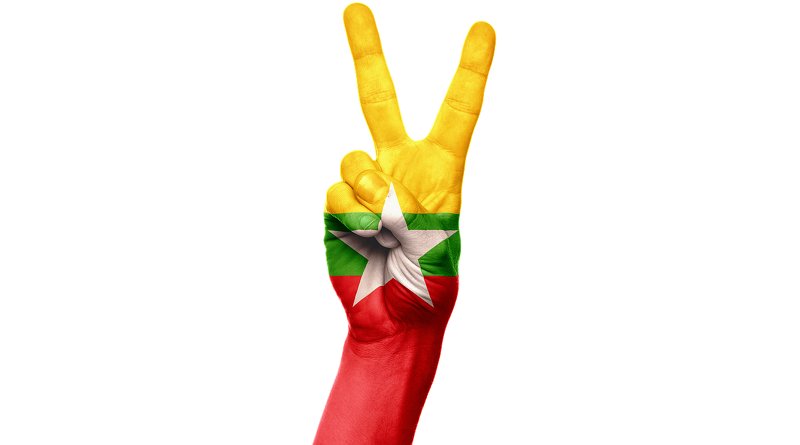Rohingya Recruitment: A New Threat To Peace And Reconciliation In Myanmar – OpEd
Following substantial military setbacks in recent months, the Myanmar military has declared its intention to enforce, for the first time, a conscription law enacted in 2010, mandating young individuals to undergo a minimum of two years of military service. The military, grappling with substantial territorial losses to the ethnic Arakan Army (AA) in Rakhine state since November 2023, faces a critical shortage of manpower and seeks to replenish its ranks.
Under the ongoing dire security situation, the Junta announced that if Rohingya men serve in the military, each one will receive a sack of rice, a citizenship identity card, and a monthly salary of 150,000 kyats (US$ 41). The Rohingya community vehemently opposed this repressive measure. Many have condemned this as a reprehensible attempt to exploit them as human shields. In a contentious action, the Myanmar military has issued a directive (under the People’s Military Service Law) to recruit soldiers directly from Rohingya Internally Displaced Persons (IDP) camps in Sittwe. Allegedly dated January 20, 2024, this order instructs camp management committees to select individuals from each camp to strengthen military operations against the Arakan Army.
On February 10, spokesperson Major General Zaw revealed the immediate application of the People’s Military Service Law. This law stipulates that individuals aged 18 to 45 for men and 18 to 35 for women may be drafted into the armed forces for a two-year term, extendable to five years during times of national crisis. A particularly contentious measure involves the directive issued by the Myanmar military, under the provisions of the People’s Military Service Law, to recruit soldiers directly from Rohingya Internally Displaced Persons (IDP) camps located in Sittwe.
This decision and the clandestine actions of the Junta will have dire consequences for the Rohingyas. It has already become another instrument of torture, suppression, and brutality in Myanmar against the Rohingyas. Approximately 1.2 million Rohingya refugees of ethnic origin have sought refuge in Bangladesh since 2017, following their displacement from Myanmar due to a military-led clearance operation. Within Myanmar, another 630,000 Rohingya individuals are classified as stateless by the United Nations. This group includes those residing in internally displaced persons (IDP) camps and facing restrictions on their movement within Rakhine state. With over 13 million out of the country’s 54 million population eligible for conscription, the implementation of the draft is scheduled for late April 2024. The objective is to enlist approximately 60,000 individuals annually, organized in batches of around 5,000 recruits.
Uncertainty Surrounding Recruitment
One of the key uncertainties surrounding the military’s recruitment drive is the number of Rohingya individuals who will be compelled to serve. This lack of clarity adds to the apprehensions within the Rohingya community and undermines the prospects for their voluntary repatriation to Myanmar. The junta’s selective recruitment of Muslims, particularly Rohingya individuals, for military service raises concerns about exacerbating communal tensions in Myanmar’s already volatile socio-political landscape. By explicitly targeting Muslims for enlistment, the military regime risks deepening existing divisions and fueling sectarian strife within the country.
The enlistment of Rohingya Muslims, a marginalized and persecuted minority group, into the military could further alienate them from mainstream society and exacerbate their already precarious situation. The military’s exploitation of vulnerable Rohingya individuals for its own strategic interests not only violates their rights but also undermines efforts towards reconciliation and peacebuilding in Myanmar.
The junta’s recruitment drive risks legitimizing and perpetuating systemic discrimination against the Rohingya, reinforcing their status as second-class citizens and perpetuating their statelessness. By denying the Rohingya equal opportunities for citizenship and participation in civic life, the military regime perpetuates their marginalization and exclusion from society, fostering resentment and alienation.
The military regime’s targeting of Muslims, particularly Rohingya individuals, for military recruitment not only perpetuates discrimination and marginalization but also risks exacerbating communal tensions and fueling future conflicts in Myanmar. It is imperative for the international community to condemn such discriminatory practices and advocate for the protection of the rights and dignity of all communities in Myanmar.
Despite recruitment efforts, no concrete timeline has been provided for the training program’s commencement. Recruits, if trained, would join junta troops guarding Kyaukphyu routes and potentially face combat situations. Rohingya internally displaced persons (IDPs) express fear of military service but are confined to the camp due to the surrounding junta presence, indicating the impracticality and coercion involved in forced recruitment.
Implications of the recruitment strategy
The long-term implications of this recruitment strategy are deeply concerning, as it has the potential to sow the seeds of future conflict and instability in Myanmar. By exacerbating communal tensions and deepening divisions within society, the junta’s discriminatory policies undermine prospects for sustainable peace and reconciliation in the country.
This discriminatory recruitment strategy not only perpetuates discrimination against the Rohingya but also threatens to inflame communal sentiments among various ethnic and religious groups in Myanmar. The perception of favoritism towards Muslims in military recruitment could breed resentment among other communities, leading to heightened intergroup animosity and potential outbreaks of violence.
The military junta’s decision to compel Rohingya individuals into military service represents another regressive step that threatens to undermine efforts toward peace, reconciliation, and the voluntary repatriation of the Rohingyas. The coercive nature of this initiative further erodes trust between the Rohingya community and the Myanmar government, impeding progress towards a sustainable repatriation process. It is imperative for the international community to condemn this coercive measure and advocate for the protection of Rohingya rights and dignity.

